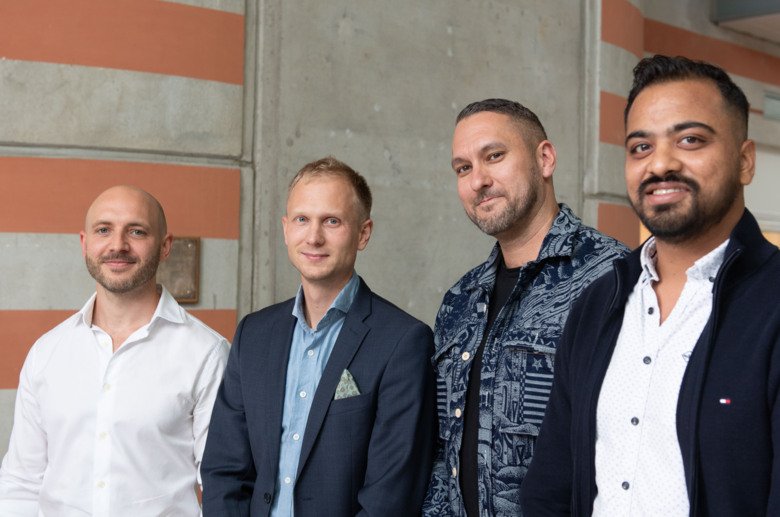Our research
Our research efforts focus on one of the greatest challenges facing modern therapeutics: delivery. Despite the unprecedented knowledge of diseases and their mechanisms due to advances in biomedical sciences, many promising therapeutic approaches are still clinically unavailable. This is simply because there is no efficient means of delivering these therapeutics to the right organ with the right dose. Such therapeutics include proteins for replacement therapy or antibodies for anti-inflammatory treatment as well as nucleic acid therapeutics for gene therapy of diseases including muscular dystrophies and neurodegenerative disorders.
We develop innovative and efficient drug delivery technologies that are able to carry protein and/or gene therapies to the target tissues safely and efficiently. Our particular emphasis lies on natural nanocarriers, bioengineered extracellular vesicles (EVs), and synthetic nanoparticles, such as cell-penetrating peptides (CPPs) and lipid nanoparticles (LNPs).
My team investigates EV engineering to encapsulate siRNA, mRNA, proteins, and genome-editing tools, and modifying their surfaces for precise tissue targeting. We have developed state-of-the-art platforms for both exogenous cargo loading and scaffold-based endogenous loading, improving encapsulation efficiency and functional delivery. With this, we have demonstrated targeted EV delivery in the brain, to tumors, and extrahepatic organs in vivo. Moreover, our portfolio for streamlined nanoparticle characterization methods, including advanced single-vesicle flow cytometry, and profound experience in EV-based biomarker analysis positions our group at the forefront of the EV research field.
In parallel, my group is advancing complementary delivery platforms that include synthetic CPP- and LNP-based technologies as well as precision bioconjugation strategies for extrahepatic targeting of oligonucleotides. Within the newly established ATMP Center at Karolinska Institutet, we are exploring the design, formulation, and functionalization of CPPs, LNPs, and antibody- or ligand-conjugated oligonucleotides. With our fully integrated team of organic chemists and biologists, we tailor these nanoparticles to achieve specific tissue tropisms and integrate targeting and endosomal escape strategies to overcome delivery bottlenecks in RNA and DNA delivery. These efforts include our combinatorial “in-situ engineering” strategy, where synthetic nanoparticles transiently reprogram host cells to secrete therapeutic EVs, creating hybrid delivery workflows.
Operating at the intersection of advanced nanomedicine research and translational development, my lab bridges mechanistic studies with preclinical models and industry collaborations. Our work aims to build a versatile and adaptable toolkit for therapeutic payload delivery and various disease targets.
External funding
Swedish Research Council (Vetenskåpsrådet), Novo Nordisk Foundation, ERC Consolidator, DELIVER, Horizon H2020 EXPERT, Sjöberg stiftelse, Flagship Grant, Swedish Foundation for Strategic Research (SSF), Swedish Cancer Foundation (Cancerfonden), Swedish Childhood Cancer Foundation (Barncancerfonden), Swedish Brain Foundation (Hjärnfonden), Knut and Alice Wallenberg Foundation, Vinnova, Evox Therapeutics, UK Research and Innovation, Medical Research Council (MRC), KI internal funding (CIMED, KID, KI faculty funding.
Research in media
 Photo: Stefan Zimmerman.
Photo: Stefan Zimmerman.Tiny bubbles can be future treatment for inflammation
Scientists hope that tiny sacs of material excreted by cells – so-called extracellular vesicles – can be used to deliver drugs inside the body. Researchers at Karolinska Institutet now show that these nano-bubbles can transport protein drugs that reduce inflammation caused by different diseases. The technique, which is presented in Nature Biomedical Engineering, shows promising results in animal models.
 Photo: Getty Images
Photo: Getty ImagesNew study reveals tiny cell bubbles big impact on health
A recent study published in Science Advances has unlocked some fascinating insights into Extracellular vesicles' tiny messengers and their potential in healthcare.
